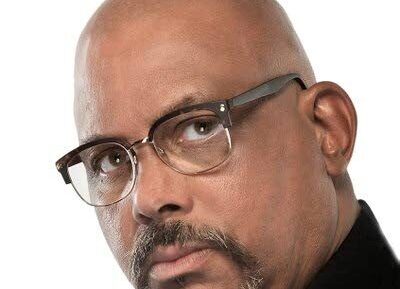The Meta fail: Why you should be a digital homeowner

BitDepth#1449
ON MARCH 5, for just over an hour, Meta's online platforms, including Facebook, Messenger and Instagram, went offline globally for hundreds of thousands of users. Meta's WhatsApp chat service and its virtual reality environment Horizon Worlds experienced minor disruptions.
The last time the company's services experienced an outage on this scale was in October 2021, when an accidental misconfiguration knocked the company's servers off the internet backbone for more than six hours.
These are ultimately small and largely inconsequential inconveniences, though it's notable that as of this writing, Facebook has not explained how its services, used by an estimated three billion people around the world, stopped working.
Nobody expects any service to be infallible.
But your concerns should lie beyond the occasional failure of sophisticated platforms and the intricate systems that underpin them to the broader reality that social media platforms are designed to turn your participation into profit.
Along the way, they may offer useful communications and socialisation tools, but as the tech-savvy never fail to remind us, if you are not a customer, you are the product.
Depending on increasingly whimsical social media platforms to run a business, provide a nexus for building communities and maintain communication channels is hopeful at best and foolhardy at worst.
"Corporations die (and) platforms fall out of favour," said Robert de Gannes, a growth marketing consultant.
"Having your own piece of digital real estate safeguards things. Think of all the hours and dollars you've invested into Facebook and now over a decade later it's not growing at the same pace. TikTok is taking over, and you have to build content for a new platform. This won't stop; there will be something else after TikTok too.
"But if you build your website and update it frequently, you're owning a piece of digital real estate that is yours."
It's an important point, and one that regular readers of this column might have heard me mention before.
As a way of presenting your thoughts, opinions and concepts to the wider world, social media offers a compelling billboard, but messages tend to be visible only for the fleeting instant that they appear in a user's timeline before being swept away by a raging flood of AI-generated blather, rabid invective and shameless falsehoods.
Step out of line and post something that a social media platform decides is controversial (and some truly innocuous things have been) and you're either shadow-banned, suspended or straight up ejected and all your posts are either lost or abandoned.
Trying to build an effective representation of yourself on social media is a whole lot like running through the rain with a funnel trying to fill a bottle.
You can do it if you put enough effort into it, but there are more effective ways.
The gold standard for controlling your presence is a self-hosted website with an effective domain name. Extra points for creating and using e-mail addresses that use that domain.
The importance of a unique domain can't be over-emphasised. It locates you as a professional entity or business on the internet and implies far more about your operations than you might imagine.
A website can be static, a posting with basic information about your brand or services, but in this year of our Lord 2024, post-covid19, there is really no good reason not to invest the time and effort to create a site based on a content management system such as WordPress.
Once you get going with using the system, what you write, say, or do (on video) will be preserved there without any fear of it being lost in the relentless flow of the social media timeline.
WordPress isn't easy to install or to work with, but neither is it exceptionally difficult. If you can do moderately sophisticated work in Word or Excel, it isn't a big jump from there to getting the hang of a basic installation. It's one of the consequences of easy social posting, encouraged by the widespread adoption of social media platforms that even the most basic skills of website creation are now treated like digital witchcraft.
A unique, appropriate domain that signals your professional intent and a continuously updated website that reflects your thinking, approach and sensibilities are table stakes for doing business today, doubly so if your work makes use of internet technologies to operate.
By all means make use of social media, I certainly do, but don't depend on it to be a cornerstone of your business or professional life.
That path leads to tragedy and madness.
Mark Lyndersay is the editor of technewstt.com. An expanded version of this column can be found there

Comments
"The Meta fail: Why you should be a digital homeowner"